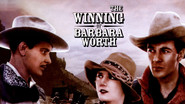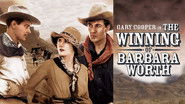SmugKitZine
Tied for the best movie I have ever seen
Dorathen
Better Late Then Never
Anoushka Slater
While it doesn't offer any answers, it both thrills and makes you think.
Celia
A great movie, one of the best of this year. There was a bit of confusion at one point in the plot, but nothing serious.
JohnHowardReid
SYNOPSIS: Jefferson Worth's dream is to turn the desert wasteland into a garden paradise. To bring this worthy project to fruition, he turns to the Wall Street financier, James Greenfield, and his step-son, engineer Willard Holmes. Unfortunately, Greenfield is a crook.NOTES: Although he figures way down the cast list, Gary Cooper (in his first credited movie appearance) is in reality playing the second male lead. (In fact, he has actually been bumped up into third position on the current DVD). This role was originally slated for cowboy star, Harold Goodwin. Unfortunately for his own career, Goodwin was delayed at Warner Brothers where he was making The Better 'Ole with Syd Chaplin. A replacement had to be found in a hurry. Henry King remembered a screen test he'd seen of Gary Cooper whom he'd signed on as an extra at $50 a week. So King offered Cooper the role and an additional $15 a week.COMMENT: Although it only intermittently captures the religious flavor and fervor of Harold Bell Wright's 1911 novel, The Winning of Barbara Worth proves a grand movie experience, with winning performances all around in a fast-moving plot that cascades into an unforgettable climax. The photography is outstanding and King's direction both forceful and fluid. Production values are particularly rich with awesome location footage and thrilling action scenes involving hundreds of extras. Even Clyde Cook's comic relief seemed mildly amusing. And as for the clash of leading men, personally, I thought the charismatic Cooper easily outshone hard-working Colman. (DVD from M-G-M. Quality rating: 10 out of 10).
Steffi_P
Gary Cooper was one of the most consistently popular stars of classic cinema from the beginning of the talkie era to his death in 1961. However there is a lesser-known early chapter to his career, when he played supporting roles in a series of silent pictures. He never achieved stardom in this period, in part because a lot of his appeal was founded in his warm, steady voice. Still, his charming persona was enough to shine through even in these non-speaking days, as this, his first credited appearance, shows.The Winning of Barbara Worth was a prestigious picture in its day, directed by the respected and capable Henry King. King was really good at these human dramas played out against a grand backdrop. On the one hand he keeps the vastness and deadly potential of the desert a continual presence, with landscape shots that seem to go on forever. But on the other hand he is not averse to stripping away all other business to just focus us on people and their faces. There are some really neat close-ups here, such as Gary Cooper jealously spying on Vilma Banky with Ronald Colman, or Banky as she walks out on Colman. These shots aren't overused, and they seem to segue naturally into the editing pattern rather than being "look-at-this" attention-grabbers. But what is really impressive is the way King can arrange things to tell the big story and the intimate one simultaneously. Look at the scene in which the water flows into the irrigation system. The crowd cheer and dance ecstatically, but the main characters who have put more into this than any other are stood still, as if overcome with emotion. There are a handful of close-ups of various reactions, and then we see Banky and Colman share their first kiss, and all the liveliness behind them reflects the intensity of the moment. As the kiss breaks off there is a sudden feeling of awkwardness between them, and the slowing of the crowd seems to mimic this too.And this is very much a *silent* drama of reactions, expressions, motions and body language. Gary Cooper may not have his voice here but he does have that deep, sensitive face and steady, deliberate way of moving. His acting is only passable at this stage, but he has the look of a man one can implicitly trust, and this goes a long way in screen stardom. And yet for this picture Cooper is ostensibly the third wheel, behind dapper, moustachioed lead man Ronald Colman. Colman was a very decent dramatic player, and as with Cooper there was something innately likable about his manner which secured his success into the sound era. Colman is very good here, and it is only his experience as an actor coupled with his own honesty and simplicity that prevent him being outshone by Cooper. The leading lady is Vilma Banky, who shot to fame as the object of ravishment for Rudolph Valentino. In this slightly more grown-up picture she reveals herself to be a very fine actress, and like her two male co-stars she has a capacity for deeply expressive reacting. Sadly her career was to fizzle out in the sound era, probably because English was not her first language.Story-wise, The Winning of Barbara Worth is a tale of progress and prosperity that is very typical of Roaring Twenties optimism. And perhaps herein lies another reason why Cooper didn't become a cinematic icon until a few years later. The end of the silent era happened to coincide with the beginning of the great depression. Before that, Cooper's down-to-earth nature didn't really fit with the grandiose flights of fancy that made up most of 1920s cinema. However by the 1930s, cinema had suddenly become very different in its scope and focus. Heroes became ordinary men who worked for a living, and the heroin really would marry the boy next door. As it is, this picture sees Cooper as the homely type whom Banky loves as a brother. There's no real problem with this – Cooper isn't miscast, he's simply in the wrong time for lead roles – and he plays his part aptly in what is a very worthy 20s drama.
kidboots
When sound films came in Vilma Banky's career was over. She hadn't learned to speak English that well and had a very thick accent, but besides she didn't really care. She had married Rod La Roque a couple of years before and their marriage proved to be one of the happiest in Hollywood. So she was quite happy to retire. Samuel Goldwyn had discovered her on a talent hunt through Europe and bought her to Hollywood where she was frequently co-starred with Ronald Colman. She also co-starred with Rudolph Valentino in "The Eagle" and "Son of the Sheik", and then it was back to Ronald Colman for "The Winning of Barbara Worth". This was one of the great epic Westerns of the 20s, along with "The Covered Wagon" (1923) and "The Iron Horse" (1924). Neither Colman nor Banky where keen about going to Nevada for location shooting and Gary Cooper was only signed for his role a few days before filming began.Set around the turn of last century in Kingston, a south western desert town, when civilization was fast encroaching on the old west and it's ways. Automobiles were owned and trains could make traveling to the big cities easier. The story is about bringing irrigation to the dry West.The first thing I noticed was the beautiful tints and the stylized images, certainly in the opening sequences. While a woman (Vilma Banky) has just buried her husband in the unforgiving desert, Jefferson Worth has come West with the dream of bringing irrigation to make the barren land into a paradise. During a terrible dust storm (a really stunning sequence) Jefferson finds the little girl "Barba", kneeling by her dead mother.Fifteen years later Jefferson realises his dream to bring water to the parched desert and has pride in his adopted daughter Barbara Worth (Vilma Banky). Abe Lee (Gary Cooper) son of Jefferson's old friend is in love with Barbara, but after she has a riding accident, Holmes (Ronald Colman), partner of a newly arrived land developer, offers his assistance. Gary Cooper looks so gorgeously young, it is unbelievable that Barbara would choose the rather stuffy Ronald Colman.Mr. Greenfield, his partner has been hired to build a dam for the town of Kingston. The vast panorama of the desert, complete with the burnished amber tints make this film, to me, a "vision splendid". The scene where the dam is filled is wonderful. Greenfield is a charlatan and has skipped town rather than spend money re-enforcing the dam. He also sacks all of Worth's people for spreading malicious "lies" about a flood that will destroy the town. So most of the townsfolk go in search of safer ground. Jefferson founds a new town - Barba, built high on a mesa but because of Greenfield's blockade, he finds he cannot meet his payroll. Holmes, who is completely innocent of Greenfield's plans, is secretly appealing to the bankers on Worth's behalf. When the people realize they cannot be paid, they want to burn down the town. Barbara is left alone but some of the men are in Little Rosebud's gang and she is attacked. Abe has been entrusted with the payroll but on the way he is shot by one of Rosebud's gang and realises that Holmes is decent and on the level when he saves Abe's life and delivers the payroll himself.The flooding of the Colorado River is spectacularly done. As the residents of Kingston flee to the high country of Barba, there are some amazing images of people escaping the flood ravaged town. Little bedraggled children, a man sleeping on the roof, a man running out of his bath, a man trying to escape on his wheelchair and a donkey going wild and upending a load, while the relentless river engulfs the town.It is a spectacular film, worthy of a re-look. An interesting scene showed a cushion embroided with a swastika - originally a native American symbol of good will. I also thought I saw Clarence Wilson in a bit as a barber and Clyde Cooke, a silent film comedian, played Tex, a comic sidekick. On my copy Gaylord Carter provided the organ accompaniment.Highly Recommended.
movingpicturegal
Beautifully photographed epic silent western following the story of a toddler baby girl caught in a desert sandstorm that kills her mother, the child's only surviving parent on their family's wagon trek along a lonely desert trail. Rescued by a man named Jefferson Worth, soon little orphan Barbara becomes his adopted daughter - cut to fifteen years later, where our Barbara (played by Vilma Banky) is now a young beauty living with papa in the small desert town of Rubio City. Enter new arrival, Willard Holmes, engineer set to help bring water to the desert and turn it into a garden spot. Of course he's handsome (well, he's played by Ronald Colman, after all) - but Barbara already has a local fellow, Abe Lee (Gary Cooper), who is completely smitten over her (and extremely handsome too - how's a girl to choose?!). Holmes actively pursues Barbara while Abe Lee watches from the background - but soon a misunderstanding leaves the whole town believing Holmes is a money hungry bad man! This film is a stunning visual masterpiece showcasing images of wagons and people and horses moving against a backdrop of yellow-tinted sun-lit desert that looks absolutely gorgeous, not to mention the exciting flood climax featuring a fast-paced race on foot and wagon between the townspeople and the approaching roar of the Colorado river which is expertly brought to life. The DVD of this features a totally gorgeous tinted print that really makes the cinematography in this pop, plus a well done organ score done before a live audience (who you can sometimes hear laughing in the background). A really excellent film.




